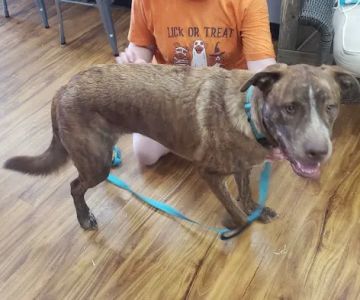Essential Foods for Keeping Your Pet Healthy and Happy
As a pet owner, one of the most important things I can do for my furry friends is ensure that they stay healthy and happy. After all, pets are a part of our family, and just like humans, they need a balanced diet to thrive. Over the years, I’ve learned that the right food can make a huge difference in the well-being of my pets. From boosting energy levels to supporting their immune system, the food we provide them plays a major role in their overall health.
As I began exploring the best foods for my pets, I discovered that not all pet foods are created equal. With so many options available on the market, it can be overwhelming to know what’s best for your pet’s specific needs. That’s why I wanted to share some insights into the foods that have worked wonders for my pets, along with tips on how to choose the right foods to keep them healthy and happy. Whether you have a dog, a cat, or any other pet, this guide will help you make informed decisions about their diet.
1. Understanding Your Pet’s Nutritional Needs
Before jumping into the specific foods that are best for your pet, it’s important to understand their basic nutritional needs. I’ve learned over time that pets, just like people, require a balanced diet made up of proteins, fats, carbohydrates, vitamins, and minerals. These nutrients support everything from their energy levels to their skin and coat health.
Dogs and cats have different nutritional needs, but both require high-quality protein for muscle development and repair. Additionally, both species need healthy fats for energy, as well as carbohydrates for fiber and digestion. It’s important to choose food that provides these essentials in the right proportions. I’ve found that high-quality pet foods that prioritize animal-based proteins (like chicken, turkey, or fish) are usually the best options for keeping my pets in top shape.
Another aspect to consider is age. Just like humans, pets have different nutritional needs at different stages of their life. Puppies and kittens, for example, need more calories and protein to support their growth, while older pets may benefit from lower-calorie, high-fiber foods to maintain a healthy weight and prevent joint issues.
2. Best Proteins for Your Pet’s Health
Protein is the foundation of any healthy pet diet. Over the years, I’ve learned that the quality of protein is just as important as the quantity. High-quality protein sources help support strong muscles, a healthy coat, and overall vitality. Here are some of the best protein sources for pets:
2.1. Chicken
Chicken is a staple in many of the best pet foods, and for good reason. It’s a lean, easily digestible protein that provides essential amino acids. I’ve found that both my dogs and cats thrive on foods with chicken as a primary ingredient. It’s also rich in vitamins and minerals, such as niacin and selenium, which support metabolism and immune health.
2.2. Fish
Fish, particularly salmon and tuna, are excellent sources of protein and omega-3 fatty acids. Omega-3s help maintain healthy skin and a shiny coat, which is important for pets like my dog who tends to have dry skin. Fish is also known for its anti-inflammatory properties, making it a great option for older pets or those with joint issues.
2.3. Beef
Beef is another great source of protein, providing high-quality nutrients to support muscle development. I often choose beef-based pet foods for my pets when I want to ensure they’re getting the right amount of essential amino acids. Beef also contains iron and zinc, which are essential for healthy blood cells and immune function.
3. Healthy Fats: Why They Matter
Fats are an essential part of a pet’s diet, providing them with the energy they need to stay active and healthy. But not all fats are created equal. I’ve learned that it’s important to choose pet foods that contain healthy fats, such as omega-3 and omega-6 fatty acids. These fats help promote healthy skin, improve cognitive function, and support the immune system.
Some of the best sources of healthy fats for pets include:
3.1. Fish Oil
Fish oil, particularly from salmon, is a fantastic source of omega-3 fatty acids. I add fish oil to my pets’ diets to help improve their skin health, reduce inflammation, and boost overall wellness. The fatty acids in fish oil are also great for brain function, which is particularly beneficial for older pets.
3.2. Chicken Fat
Chicken fat is a common ingredient in many pet foods and is an excellent source of omega-6 fatty acids. Omega-6s are essential for maintaining healthy skin and coat, and they also support the immune system. I prefer pet foods that contain chicken fat because it’s a natural source of these essential fatty acids.
4. Carbohydrates and Fiber for Digestive Health
While protein and fats are the primary focus of a pet’s diet, carbohydrates also play a crucial role in their overall health. I’ve found that the right carbohydrates provide a good source of energy, but they also help maintain a healthy digestive system. High-quality sources of carbohydrates, like sweet potatoes, brown rice, and peas, are excellent for providing fiber and helping to regulate digestion.
Fiber is essential for keeping your pet’s digestive system running smoothly. It aids in the movement of food through the intestines and helps prevent constipation. Additionally, fiber can help with weight management by making pets feel full for longer periods. My dog, for example, has a much easier time maintaining a healthy weight when I feed him a diet rich in fiber.
5. Fruits and Vegetables for Essential Vitamins
Just like humans, pets can benefit from the vitamins and antioxidants found in fruits and vegetables. I’ve made sure to include foods with these ingredients in my pets’ diet because they provide essential nutrients that support their immune system, vision, and overall health. Some of the best fruits and vegetables for pets include:
5.1. Blueberries
Blueberries are rich in antioxidants, which help fight off free radicals and protect cells from damage. I often give my pets small amounts of blueberries as a treat because they are packed with vitamin C, which supports the immune system. They also help with brain health and can improve memory function in older pets.
5.2. Carrots
Carrots are an excellent source of vitamin A, which is crucial for maintaining good vision and immune health. I’ve noticed that my pets love crunchy carrots, and they’re a great low-calorie snack. Plus, the fiber in carrots supports healthy digestion.
5.3. Sweet Potatoes
Sweet potatoes are an excellent source of carbohydrates and fiber, and they’re also rich in vitamins A and C. I add sweet potatoes to my pets’ meals because they provide energy, support digestive health, and help maintain healthy skin and coat. Sweet potatoes are especially beneficial for pets who need extra support for digestion or weight management.
6. Hydration: Don’t Forget Water!
While focusing on food is important, it’s equally essential not to overlook hydration. I’ve found that providing fresh, clean water throughout the day is one of the best things I can do for my pets. Staying hydrated helps with digestion, regulates body temperature, and supports healthy skin. Some pets are more inclined to drink water, while others may need encouragement. I’ve had success with adding a splash of low-sodium broth to my pets’ water to make it more appealing.
In addition to water, I also include wet food in my pets' diet occasionally. Wet food can help boost their hydration levels, especially for pets who are picky drinkers. It’s a great way to provide added moisture and make their meals more exciting.











